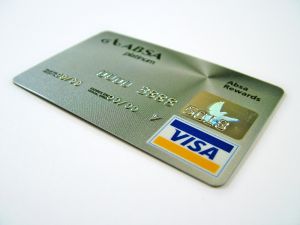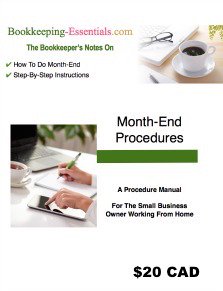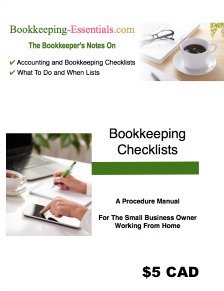Personal Line of Credit for Business

Line of Credit
Hi There
If I use my personal line of credit to help fund my business does the line of credit get included as a business liability or do I add it to shareholder loans? The line of credit is not pledged to the business. It is strictly my personal use line of credit.

If the only charges to your personal line of credit are business related ... and you intend to keep it that way (i.e. not use it for any personal expenses), then I would include the line of credit in your current liabilities. I would probably set it up as a credit card type to make it easy to reconcile on a regular basis.
If it is a mix of personal and business expenses on your line credit, I would only record the business amounts to your shareholder's loan account. Depending on the amount of interest expense, I may or may not record a prorated amount of interest expense ... only the interest associated with your business purchases. If you have a lot of purchases and payments on the line of credit and they are a mixture of business and personal expenses, it may not be worth your time to prorate the interest pertaining to the business expenses.
Comments for Personal Line of Credit for Business
|
||
|
||
|
||
Line of Credit Credit Card
by Gayle
(Calgary, Alberta)

Line of Credit Visa Card
Thank you so much for putting together such a wonderful site for people like myself to go to and use as a resource tool.
It has answered so many of my questions and has made me more knowledgeable in areas I wasn't as clear about, which has resulted in me providing a better service for my clients.
My question:
I recently took on a new client that is incorporated and has been using a Line of Credit Visa Card.
This card gives customers credit to use for business needs. You only pay when you use your line of credit and there are no annual, monthly or application fees.
When I went through the Visa Statements I noticed them in my clients name not the company name. The bank does not put the company name on the card as the credit is based on the clients personal credit history.
Would my client have problems with Canada Revenue accepting this card for an incorporated company when the credit is based on my clients personal credit history and all the statements are in the client’s name?
In my opinion this type of card does not show a separation between my client (personally) and the company (separate legal entity).
Thank you.
Gayle
Calgary, Alberta

Hi Gayle,
I believe the banks issue the "business" credit in the owner's personal name nowasdays as a way of getting a personal guarantee ... i.e. the owner can't hide behind the corporation.
In my opinion, the best solution is to have a credit card in the corporation's name.
I would be interested in how the owner wants the debt treated. Does the owner want the card expenses to be treated as a loan to the corporation or does s/he want to be reimbursed for the business expenses?
If the owner strictly uses the credit line only for business expenses and wants it treated as reimbursement, I would set it up as an Owed to Owner account.
If the owner wants it treated as a loan, I would still set it up as a current liability, but I would call the account Shareholder Loans.
Under either distinction, s/he has to keep all receipts and payment receipts. Interest would be fully deductible as it pertains solely to business expenses.
I would also think it would be prudent that if cash advances are taken, the cash be deposited and/or transferred into the bank account as a way of proving all transactions related to the corporation.
If the owner is mixing up business and personal purchases ... explain how this increases the cost of bookkeeping ... and the line of credit should NOT show on the books.
I would have the owner submit an expense account with all receipts attached. Interest charges would have to be prorated / allocated between the personal and business expenses. See CRA's IT-533 Interest Deductibility and Related Issues.
To repay the owner, issue a cheque in the owner's name. The corporation should not be making payments directly to the credit card company in this instance.
This is just my opinion.
It might be worth your while to phone CRA and ask them if this would be adequate / acceptable ... or if you work with an accountant, you can always ask their opinion.
P.S. I would like to remind you there is a difference between information and advice. The general information provided in this post or on my site should not be construed as advice. You should not act or rely on this information without engaging professional advice specific to your situation prior to using this site content for any reason whatsoever.
Comments for Line of Credit Credit Card
|
||
|
||
|
||
Line of Credit
by Karen
(Winnipeg, Manitoba)

Over-thinking some bookkeeping entries can test your patience!
We’ve recently opened a Line of Credit account for our business operating expenses. In the chart of accounts, I created a Line of Credit bank account, a current liability account and an expense account for the interest.
I'm likely over-thinking it but I’m extremely frustrated trying to figure out how to record the activity in the accounts so that my bank reconciliation balances and the liability account shows the current debt. I understand the concept, but the actual steps are confusing me. Do I need to do double entries for every deposit and every bill I pay?
I’m using QuickBooks 2010.

Hi Karen,
You are probably a bit confused because your line of credit is the current liability so you don't need the bank account you set up ... unless the line of credit is at a different financial institution than your usual banking and the bank had you open up a chequing account too. Perhaps your line of credit is set up to only deposit your credit line proceeds to that account.
If it were me, I'd have set up the Line of Credit as a credit card type rather than a bank type. The credit card type account is a current liability and allows you to reconcile it easily to your monthly statement.
Your credit line entry each time you utilize the line (i.e. draw a loan) would be:
DEBIT the account where you deposited the loan proceeds such as one of your bank accounts or possibly an accounts payable supplier.
CREDIT the line of credit account in your current liabilities.
In QuickBooks you could make this entry using the credit card/expense window. If the funds were deposited to one of your bank accounts, you also have the option of using the transfer funds window.
When you repay a portion or all of the line of credit funds borrowed, make the following entry:
DEBIT the line of credit account in your current liabilities.
CREDIT the account you are withdrawing the loan payment from such as your bank account.
In QuickBooks, to book your entry, you can use write cheques/expense window ... or utilize the transfer funds window ... or use the credit card window selecting the refund/credit option.
What you spend the line of credit money on is a separate entry or entries all of its own. Record your expenses as you would any other expense. For example if you purchased office supplies you would debit office supplies (an expense on your income statement) and credit your payment source ... which could be a debit card, a cheque, a credit card purchase or even directly from your line of credit.
Two methods I use when I get lost or confused when booking a tricky entry are:
(1) Figuring out my debit entry by thinking about what I bought or received; figuring out my credit entry by thinking about what I gave away or where the capital came from to make the purchase.
(2) Making T-accounts on a piece of paper and working my way through the entries. When the transaction or set of transactions is really complex, I sometimes have to try a few times before I get it figured out.
Hope this helps so you can take a few minutes to put your feet up on your desk, take a deep breath ... hold it ... and exhale slowly. Do this a few times then get back to work.
Return to Small Business Bookkeeping.
Line of Credit Interest
by Carolyn
(Quebec, Canada)

How do you record interest from your line of credit?
When I have interest on my line of credit, where do I enter this interest? ... because it shows up on the line of credit and the bank account that it was paid with.
Carolyn

Hello Carolyn,
I'm guessing that the interest that shows up on your line of credit statement is for information purposes only ... as it does not require an entry.
If you have pulled the transaction in through the downloading of bank transactions, I think you will see that the entry is zero and the interest amount is in the memo field. It's fine to accept the transaction.
The entry you want to record is where the interest payment was actually taken from ... in this case it sounds like it came from the bank account.
What I usually do for this kind of transaction is use Write Cheque. In the Payee field I enter Line of Credit Interest Payment. I code the payment to Interest Expense.
If that is how your transactions are working, could you post back to the comments section below to let me know I was correct? I would really appreciate it.
Wishing you a productive and enjoyable week Carolyn!
Enjoy A Tea Break With
Me Today. Let's Chat!
Use the search feature to quickly find the
information you're looking for.
Join Me On Facebook
Help support this site by "liking" me! Here's where I post current information.
Listed Under Websites NOT Local Business.
This website is NOT associated with the business operating in Bonnyville AB.



